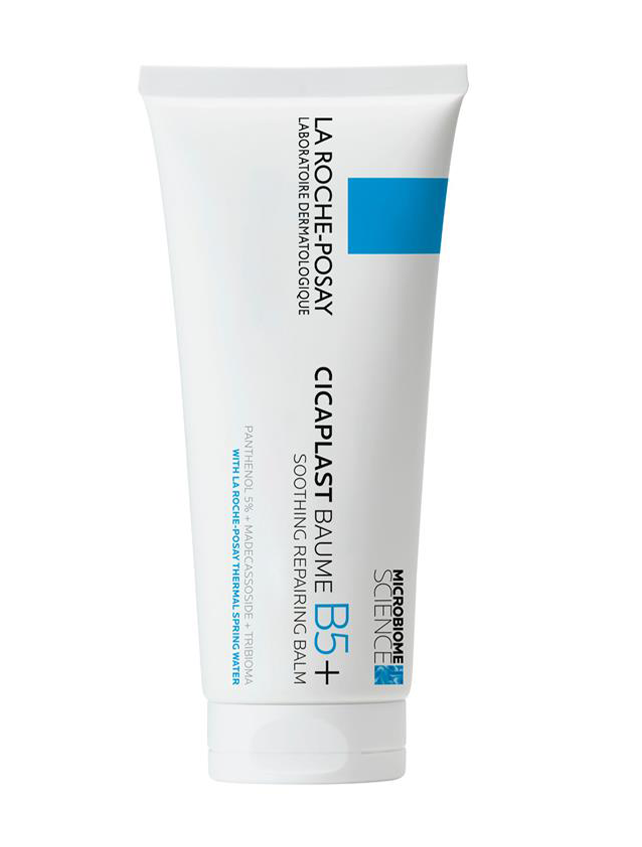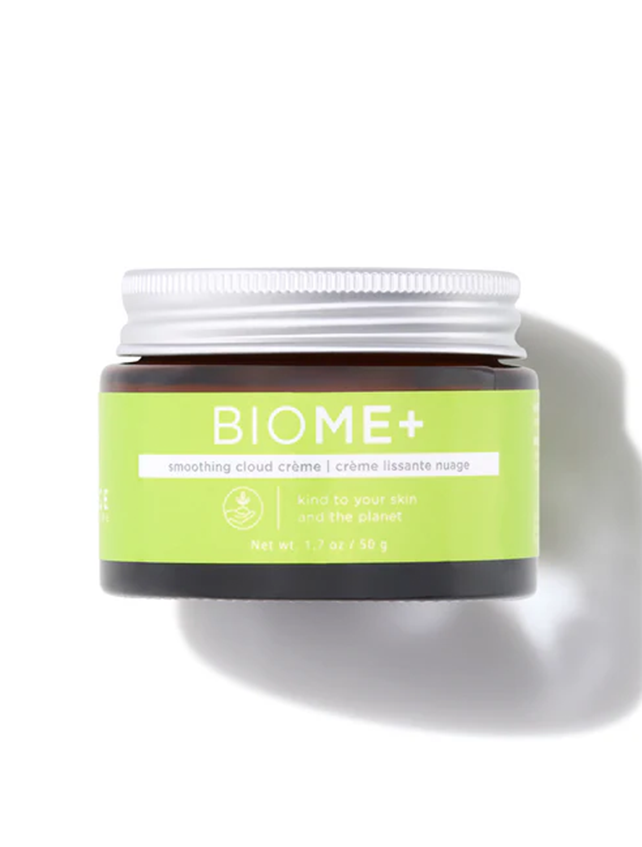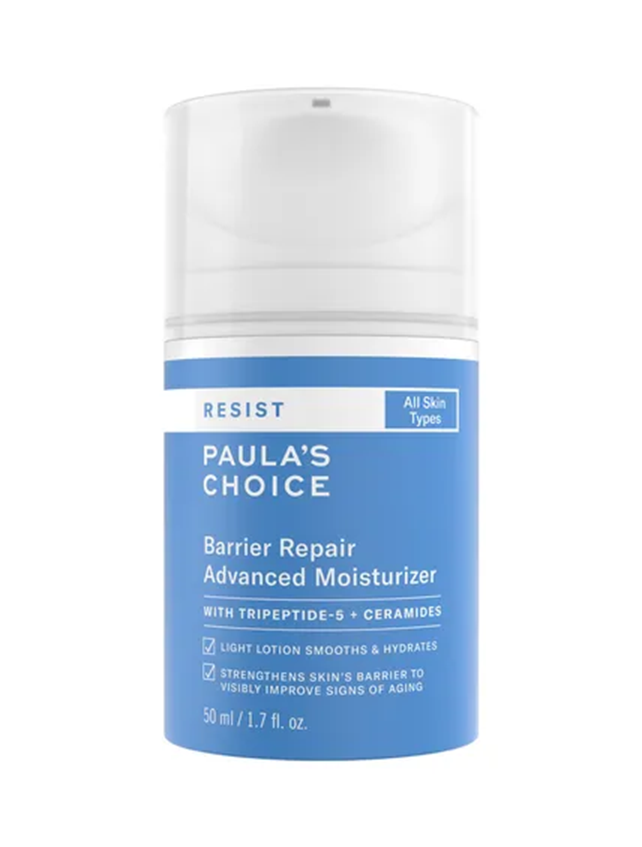What your skin barrier is and why it’s so important
Whether you’re a skin care fanatic or a bit of a novice, chances are you’ve heard the about the importance of your skin barrier (seriously, they talk about it in, like, every skin care product commercial). And while many of us know a healthy skin barrier will give you good skin, the thing is, most of us don’t even know what a skin barrier actually is to begin with.
So, we’re probably doing a really terrible job of keeping it in good nick, huh? To suss out what a skin barrier is and what we’re supposed to be doing to keep our skin looking as healthy as possible, we spoke to PhD scientist, skin coach and founder of Qr8, Dr Michele Squire.
What is the skin barrier?
What do you think of when you picture your skin barrier? Anyone else think of a little wall on your skin, trying to hold in a whole heap of water dispersed from our glorious skin care products? Well, you’re not far off. However, the science-y explanation is a little more specific.
“We often think of the ‘skin barrier’ as simply being a static protective layer that keeps us waterproof (like cling wrap),” says Dr Squire. “In reality, it is a complex defence mechanism that not only regulates excessive trans-epidermal water loss (TEWL) and traps water for skin hydration, but defends us against microbial, physical, UV and free radical damage, selectively absorbs or repels chemicals we apply to it, senses the environment, linking it to the body’s immune and nervous systems - all whilst continuously shedding old skin cells and renewing itself!”
Um, we feel like we need to sit down after reading that! Who knew our little ol’ skin barrier did so much? “These functions are all linked in an elaborate dance involving multiple cell types, chemicals, nerves and microbes,” adds Dr Squire.
In a nutshell, not only does your skin barrier keep the good stuff in (moisture), but it keeps the bad stuff out (harsh environmental factors, irritants and the like). The top layer of your skin is called the stratum corneum (SC), and Dr Squire says this is the first line of defence.
How can I tell if my skin barrier is damaged?
“Without enough water, your SC dehydrates and develops cracks, leading to the characteristic dry, red, irritated, reactive, scaly, acutely sensitive skin we associate with barrier damage. Barrier issues are especially problematic in older skin as SC lipid production decreases with age.”
While not drinking enough water, drinking too much caffeine and alcohol, or the joys of ageing skin may be to blame, Dr Squire says a damaged skin barrier could also mean the ingredients you’re using in your skin care routine are too harsh for your skin. “We often don’t consider the injury we expose our skin to daily simply by performing our skin care routine! Some chemicals and skin care techniques have the potential to disrupt the finely organised architecture of the SC, leading to loss of the skin’s water holding capacity.”
How to keep your skin barrier healthy
“Anyone who has experienced skin barrier issues knows that prevention is better than cure! It can take your skin barrier months to return to normal after being damaged,” says Dr Squire.
Along with minimising products and techniques that rob your skin of lipids, it’ll come as no surprise that moisturising is pretty crucial. Get your shopping list out, here’s what ingredients Dr Squire says to look out for: “Look for products with skin identical lipids (ceramides, cholesterol, fatty acids), humectants (amino acids, glycerine, urea, sodium PCA, sodium lactate, hyaluronic acid) and occlusive agents (silicones, petrolatum, mineral oil, waxes) to protect your skin barrier and relieve dry skin if the damage is already done.”
How do you repair a damaged skin barrier?
If you’ve really screwed up and you’re suffering dry skin symptoms, Dr Squire recommends staying hydrated from the inside out - which means drinking lots of water – as well as using fragrance-free skin care (emollients are your friend!).
Skin barrier-boosting products



Okay, so we now know that keeping our skin hydrated and protected is everything when it comes to barrier-boosting. That's why we've gone and sussed out some of the best multi-focused moisturisers on the market.
First up, the iconic, cult-classic La Roche-Posay Cicaplast Baume B5+ ($24.95 at Adore Beauty). Designed to do basically everything, the thick, rich, white balm aims to add a heap of hydration to your otherwise lacking skin. Next up, the BIOME+ Smoothing Cloud Crème ($129.95 at Image Skincare). With a microbiome-supporting formula, the silky cream locks in hydration with hyaluronic acid and squalene. And finally, it's literally in the name, the Paula's Choice RESIST Barrier Repair Advanced Moisturiser ($56 at Paula's Choice) which works to strength, smooth and lock in hydration.
Main Image Credit: @lilireinhart
Need some more moisturising inspo? These picks will help boost your hydration levels...

Erin Docherty is a Beauty Writer for BEAUTYcrew, Beauty Editor for Women's Health magazine and a Grooming Writer for Men's Health magazine. She has a keen interest in cosmeceutical skin care and is currently working on minimising her 9-step skin care routine – because ain’t nobody got time for that. When she’s not writing about the latest beauty news, or applying copious amounts of serum, you can find her spending all her money in Sephora.







